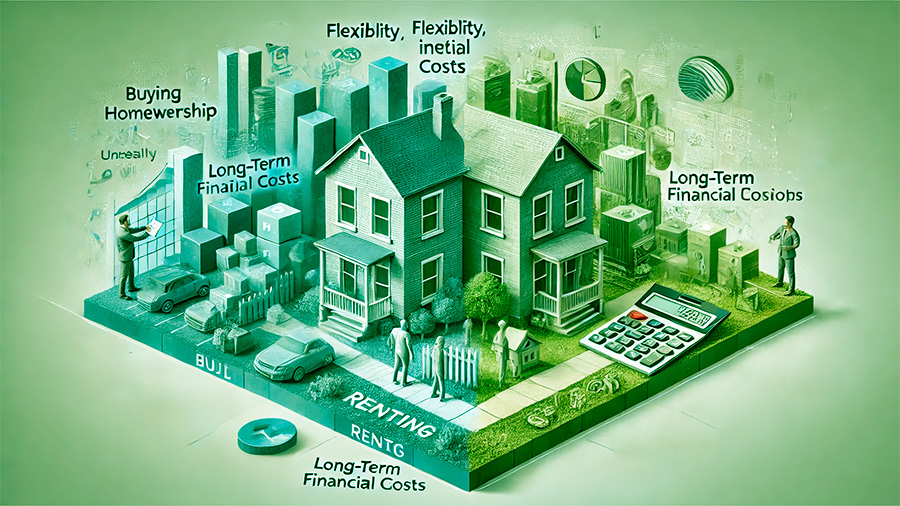Buying a home is one of the most significant financial decisions you’ll make, and for first-time buyers, the process can feel overwhelming. Whether now is the right time to buy a home depends on various factors, from the state of the housing market to your personal financial readiness. With home prices, interest rates, and economic conditions constantly changing, it’s essential to understand what’s driving the market and how these factors affect your decision. This article explores key considerations to help you determine if now is the right time to take the leap into homeownership.
Current Housing Market Conditions
The state of the housing market is one of the most important factors to evaluate before deciding to buy a home. Home prices, inventory levels, and market trends all play a role in determining whether it’s a buyer’s market or a seller’s market.
In a buyer’s market, home prices tend to be more affordable due to an oversupply of homes, and buyers have more negotiating power. If inventory levels are high and demand is low, buyers may find better deals, giving them the opportunity to secure a home at a lower price or with favorable terms.
In contrast, a seller’s market occurs when there are more buyers than available homes, leading to increased competition and higher home prices. In these conditions, homes often sell quickly, and bidding wars can drive prices above the asking price. First-time buyers may find it more challenging to secure a home in a seller’s market, and they may need to make quick decisions to compete.
Before jumping into the housing market, research local trends to get a sense of whether you’re in a buyer’s or seller’s market. Understanding the dynamics of your target area will help you make a more informed decision about whether to buy now or wait for more favorable conditions.

Interest Rates and Affordability
Interest rates have a direct impact on how affordable it is to buy a home. Mortgage interest rates determine the cost of borrowing, and even a small change in rates can significantly affect your monthly payments and the total amount of interest you’ll pay over the life of the loan.
When interest rates are low, borrowing becomes more affordable, allowing you to qualify for larger loans and lower monthly payments. This makes it easier to buy a home, especially for first-time buyers who may have limited budgets. Low interest rates can also increase your purchasing power, enabling you to afford homes in higher price ranges.
However, when interest rates rise, the cost of borrowing increases, leading to higher monthly mortgage payments. This can reduce your purchasing power and make homeownership more expensive. In some cases, rising rates may push buyers to reconsider their budget or delay their purchase until rates stabilize.
If interest rates are currently low, it may be an ideal time to lock in a mortgage with a favorable rate. However, if rates are rising, you’ll need to carefully evaluate how this affects your affordability and long-term financial goals.
Personal Financial Readiness
Your personal financial situation is just as important as the state of the housing market when deciding whether to buy a home. Before making the leap into homeownership, it’s essential to assess your financial readiness in terms of savings, income stability, and debt management.
First-time buyers typically need to save for a down payment, which can range from 3% to 20% of the home’s purchase price, depending on the loan type. While some loan programs, such as FHA loans, allow for lower down payments, having a larger down payment can lower your monthly mortgage payment and help you avoid additional costs like private mortgage insurance (PMI).
In addition to the down payment, you’ll need to budget for closing costs, which typically range from 2% to 5% of the home’s price. Closing costs include fees for the appraisal, home inspection, title insurance, and other services. Having enough cash reserves to cover these expenses is crucial to avoid financial strain.
Your credit score also plays a significant role in determining whether you’re ready to buy a home. Lenders use your credit score to assess your risk as a borrower, and a higher credit score can help you qualify for lower interest rates. If your credit score is low, you may want to work on improving it before applying for a mortgage.
Finally, consider your income stability and debt load. Lenders look at your debt-to-income (DTI) ratio to determine how much of your income is already allocated to debt payments. A lower DTI ratio increases your chances of qualifying for a mortgage and ensures that you can comfortably manage your monthly payments.

Long-Term Financial Goals
Buying a home is a long-term commitment, so it’s important to think about how homeownership fits into your broader financial goals. While owning a home can build equity and provide stability, it also comes with ongoing responsibilities and costs, such as maintenance, property taxes, and insurance.
If you plan to stay in the home for several years, buying may make more financial sense than renting, as you’ll have the opportunity to build equity over time. However, if you’re uncertain about your future plans—such as a potential job relocation or a desire for flexibility—renting may be a better option in the short term.
Additionally, consider how homeownership aligns with your other financial priorities, such as saving for retirement, paying off debt, or investing. Buying a home should not stretch your budget to the point where you’re unable to meet these other goals. It’s essential to have a clear understanding of how a mortgage payment fits into your overall financial picture.
Market Timing vs. Personal Readiness
While it’s important to understand market conditions, it’s equally important not to focus solely on timing the market. The decision to buy a home should be based primarily on your personal financial readiness and long-term goals. Waiting for the perfect market conditions can lead to missed opportunities, as market timing is notoriously difficult to predict.
Even in a seller’s market or when interest rates are higher, buying a home may still make sense if you’re financially prepared and have found a property that meets your needs. Conversely, if you’re not ready financially, even the best market conditions won’t make homeownership the right choice at the moment.
Ultimately, buying a home is a personal decision that should balance both market factors and your financial situation. Take the time to assess both sides before making the leap.
Conclusion: Is Now the Right Time to Buy a Home?
Determining whether now is the right time to buy a home as a first-time buyer depends on various factors, including the current housing market, interest rates, your financial readiness, and your long-term goals. While favorable market conditions can make homeownership more accessible, your personal financial situation should take precedence in your decision-making process. By understanding these key factors, you’ll be better equipped to make an informed choice about whether now is the right time to take the leap into homeownership.






